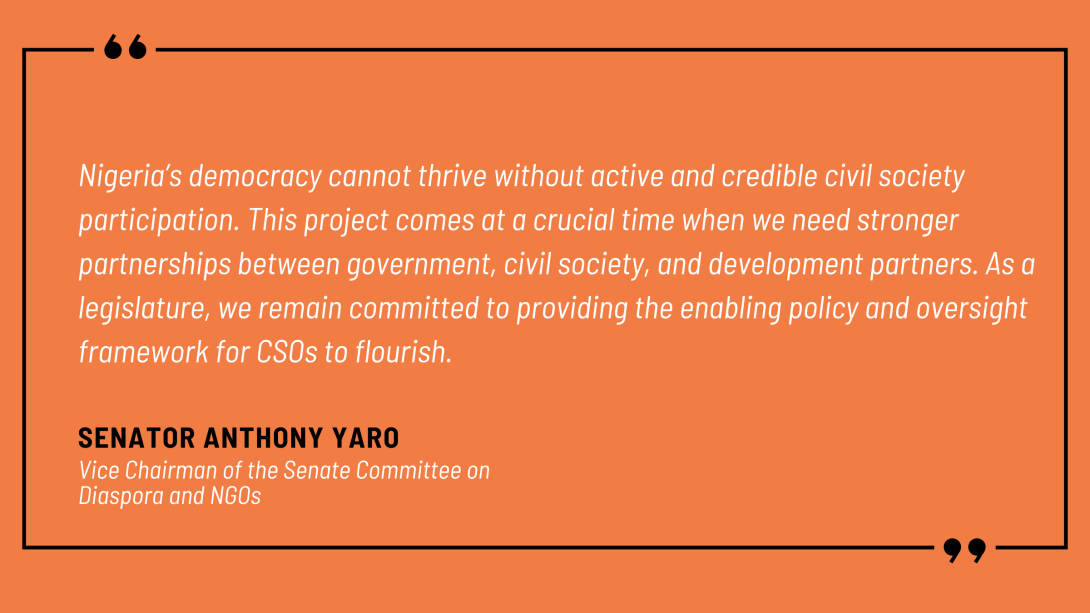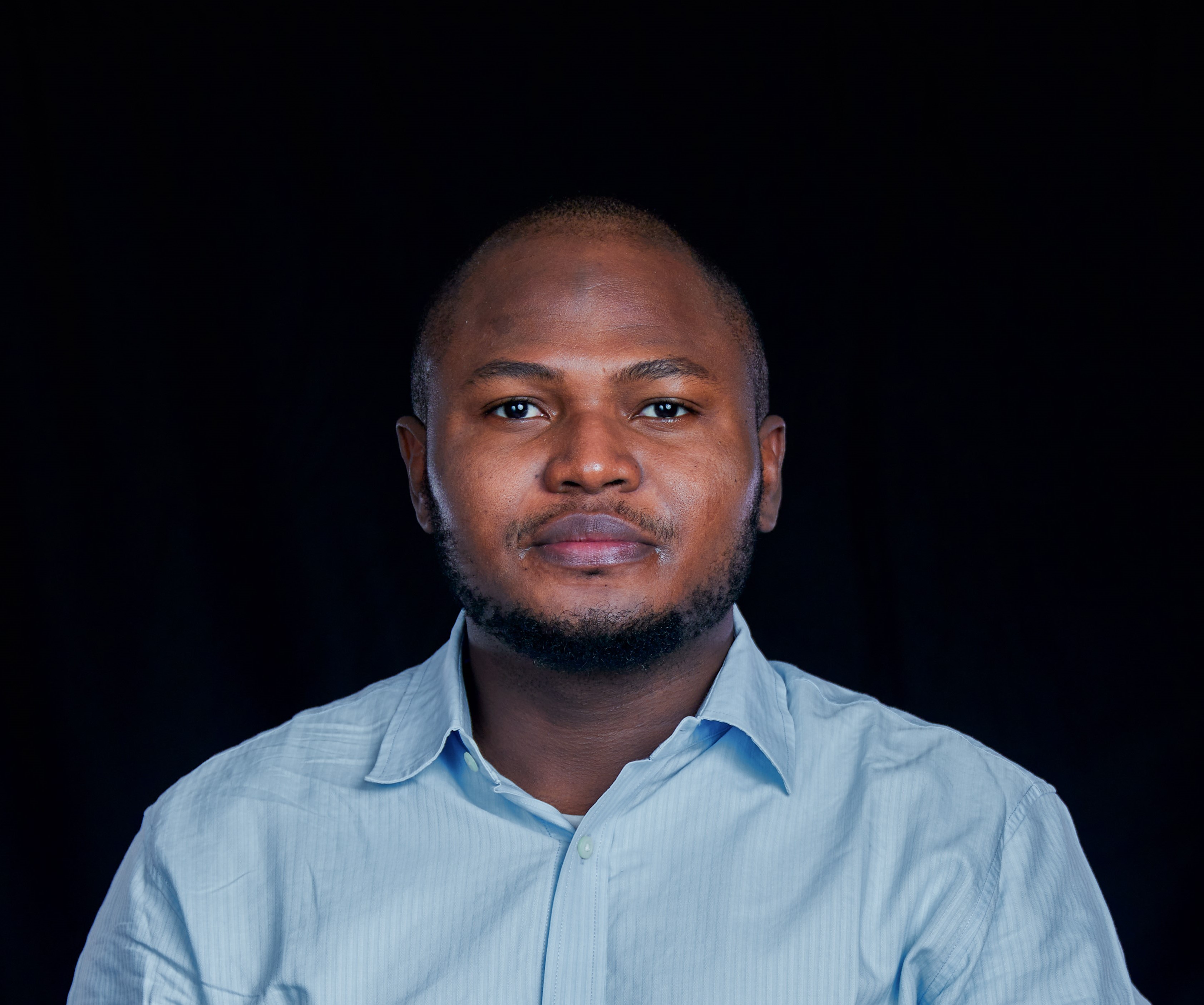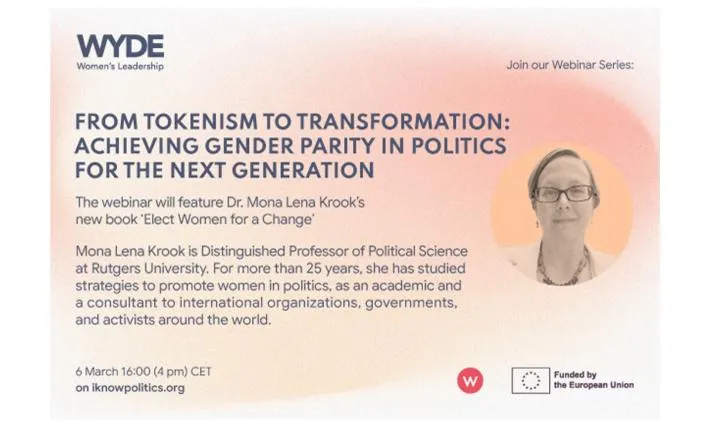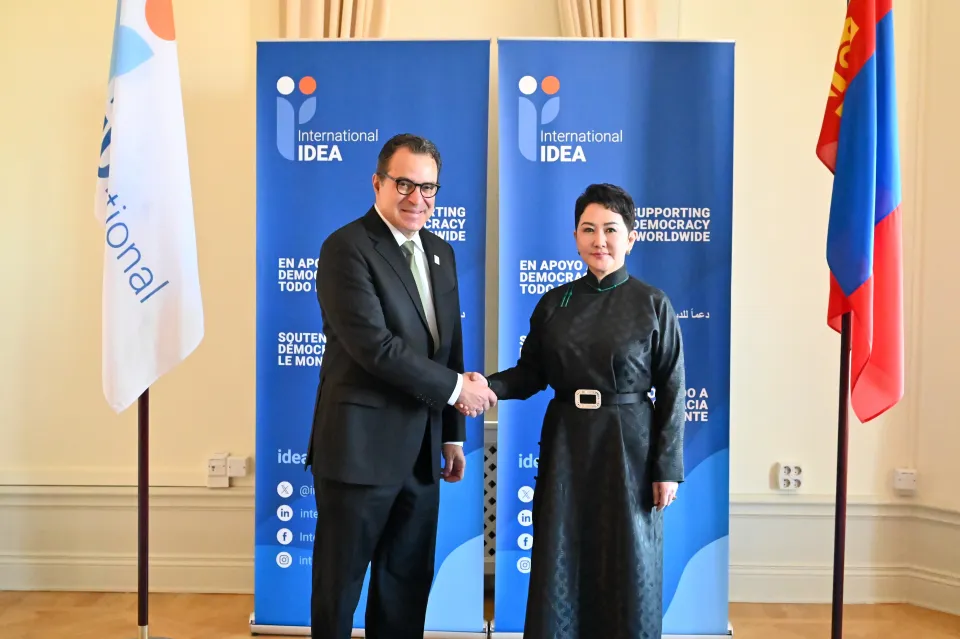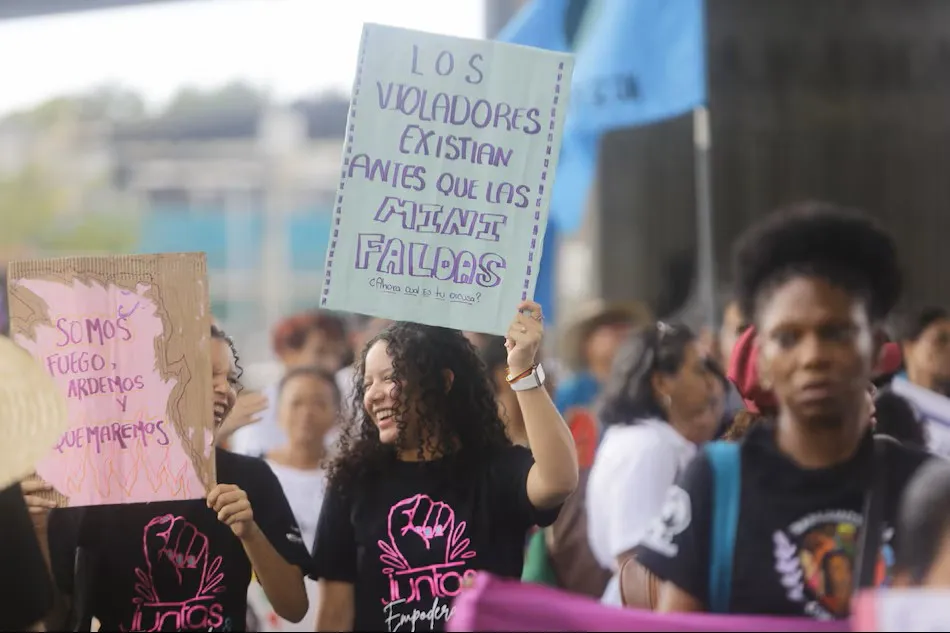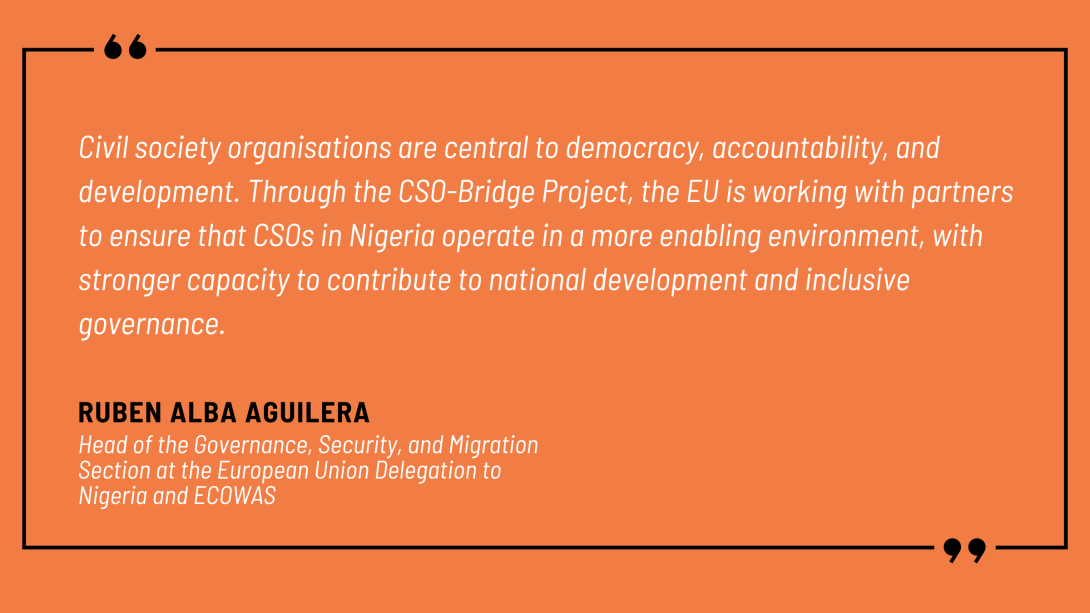
CSO-Bridge Project Launch: Creating enabling environments for CSOs in Nigeria
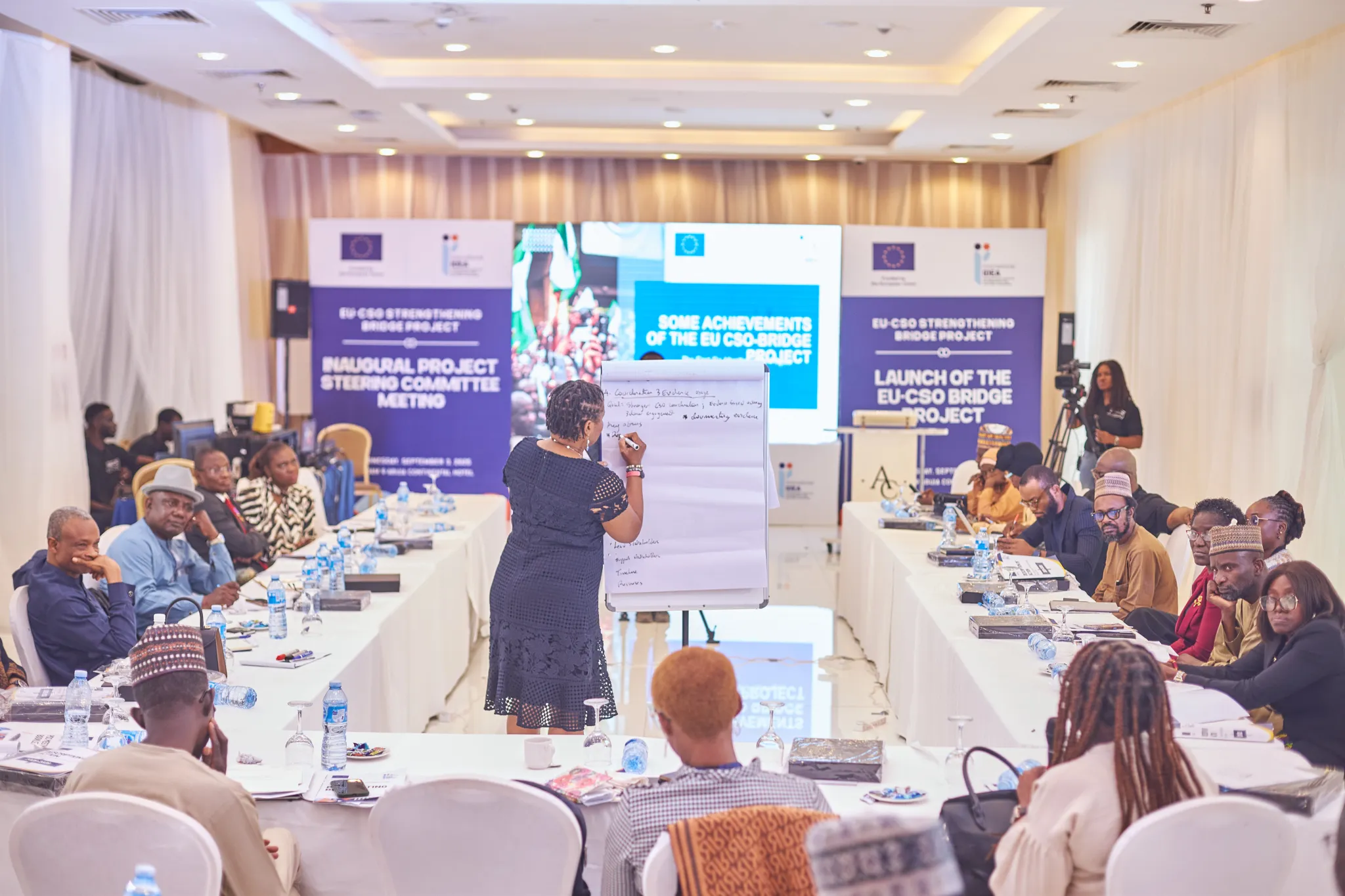
The launch, held in Abuja on 3 September 2025, brought together key stakeholders from government, civil society, the private sector, development partners, and the legislature. The event also served as the inaugural meeting of the Project Steering Committee (PSC), a governance structure designed to provide oversight, policy guidance, and strategic direction for the project.
The PSC represents a broad coalition of voices and expertise, comprising regulatory institutions, federal and state-level representatives, civil society platforms, the private sector, and international partners.

Building on past gains
For years, Nigerian CSOs have navigated a challenging landscape, balancing the need for accountability with the realities of operating in a complex regulatory environment. The CSO-Bridge Project steps into this space as a continuation of the EU’s long-term commitment, building on lessons from the Agents for Citizen-driven Transformation (ACT) Programme.
Designed to run for three years, the project seeks to achieve three big shifts:
- Improved coordination mechanisms for CSO operations at national and subnational levels.
- Stronger capacity for compliance, enabling CSOs to understand and apply regulatory requirements alongside self-regulation.
- Reformed regulatory frameworks create a smoother path for CSOs to register, operate, and contribute to development.
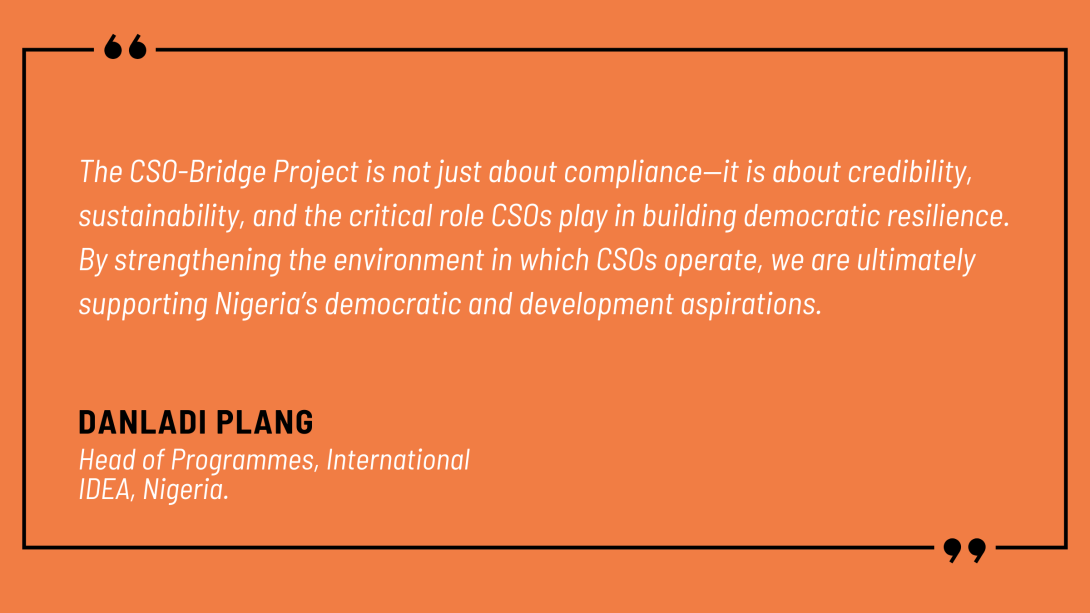
The inaugural steering committee
The day’s significance went beyond the launch. It also marked the first meeting of the Project Steering Committee (PSC), the body tasked with guiding the project’s strategic direction. The PSC brings together representatives from government, civil society, the private sector, and development partners.
In a democratic gesture that reflected the very values the project stands for, the PSC elected its first chairperson: Tawakalit Kareem of the EU Youth Sounding Board. Her six-month tenure will open a new tradition of rotating leadership, ensuring diversity and inclusivity in decision-making.
Why it matters
Nigeria’s civil society has long been a lifeline for communities, providing services, advocating for rights, and holding leaders accountable. Yet, many CSOs have struggled with regulations, funding constraints, and credibility challenges.
The CSO-Bridge Project provides an opportunity to reset. By bringing together actors from across the spectrum, from the Corporate Affairs Commission to grassroots NGOs, from the EU Youth Sounding Board to the Senate Committee on Civil Society, the project creates a space for dialogue, reform, and shared accountability.
